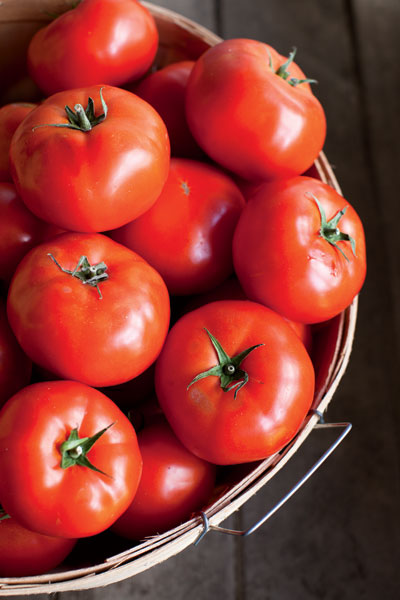In April 2006, at the start of the planting season, John Augustin had a tractor accident. It was the kind of hazard that goes with the occupation, the fear that farmers around big machinery live with every day and acknowledge without saying. It happened in an instant, in the time it takes a rotor-tiller attachment to grab a shoe and throw a grown man to the ground. Augustin lay in the field, pinned against the tire of his tractor, his left leg ground into chop meat, and hollered for 20 minutes. He finally closed his eyes and said to himself,
That’s it, man. I’m going to die. God, make it fast. Make it quick. And take care of Kathy. He closed his eyes, took a deep breath, and held it, until finally he couldn’t hold his breath any longer, and he opened his eyes. And Kathy was running to him, and his sister and nephew from across the street were running to him.
In farm communities, what happens after an accident is almost automatic: Neighbors pitch in with chores, share their paid help, donate crops. What would happen in Greenwich, Connecticut, where John and Kathy Augustin’s vegetable and melon farm was practically the only working piece of land left in a community of country clubs and hedge-fund managers, wasn’t so clear. Among the buttoned-down estates and manicured lawns, the farm stood out like a rusty anachronism. Behind the farm stand, stacks of pipe and lumber lay scattered about, tarpaper covering the chicken house, old trailers, old tractors, corrugated metal, the detritus of the season piled up against the plastic-sheeted greenhouses, all of it earthy and sweaty and out of step with the town. Across from the farm stand on King Street stood a new mansion behind columns and a high stone wall. The back of the farm stretched along the Greenwich town line, directly opposite New York’s Westchester County Airport, where limousines waited in front of an electronic signboard displaying departures to and arrivals from Philadelphia and West Palm Beach.
Augustin went into the intensive-care unit at Westchester Medical Center in Valhalla, New York, on a Sunday afternoon. He’d lost 27 units of blood and what remained of his left leg. By the time he came out of it five days later, Nino Sechi, a columnist and neighbor of John and Kathy’s, had gotten word of the accident into the local paper,
Greenwich Time.
An official at the hospital told Augustin that he’d never seen anything like it. In the three hours after the paper came out, the switchboard had lit up and not stopped lighting: 473 calls came in asking about him, from politicians, celebrities, schoolkids, teachers, neighbors Augustin had never met, classmates he hadn’t seen in 50 years–and the receptionists downstairs had finally stopped counting. “And while he’s telling me this,” Augustin recalls, “the nurses wheeled in handcarts loaded with flowers and fruit baskets and cards from this school group and that school group–it was unbelievable. Here I was thinking I was this insignificant person. I said to them, ‘I’m not going to die.'”
The news touched people where they lived. Augustine’s Farm (nobody knew why the name on the hand-painted sign ended in “e”) and vegetable stand were out of step, maybe, but they were local treasures, selling fresh eggs, field-cut flowers, sweet corn, heirloom tomatoes, all manner of lettuces and herbs and produce. In the fall, school classes made nonstop field trips and picked pumpkins, and in the winter, as they put their fields to bed, John and Kathy sold Christmas trees cut from land owned by Kathy’s uncle. The farm stand was more than a local business; it was a gathering place for young and old and all walks, a community center. And more than that: In Greenwich it was one of the few places left that reminded residents that they were part of a community.
Augustin left the hospital on June 1–just in time for his nephew’s wedding–with a prosthetic leg, lousy insurance, and medical bills that would eventually mount to three million dollars. He rigged up a hand clutch on the left side of his favorite tractor, a 30-year-old Massey Ferguson, so that he could get back out into the fields. And the community pitched in–not with shared labor, but with Greenwich’s most abundant crop and what Augustin needed most: money. A local church established a fund in his name, and donations poured in: from fund-raising breakfasts and dinners and 5K walks; school projects all over town; an auction; a car wash put on by the local Boys and Girls Club; a cross-Long Island Sound swim spearheaded by an ex-Islander hockey player. “Without all that help,” Augustin says, “we would have lost the farm.”
Not all of the response was altruistic. For decades, Augustin had routinely turned away real-estate agents interested in developing his acreage. (“I could wallpaper a 10-room house with the business cards they’ve left here,” he says.) His father had started the farm in 1948, and John began selling vegetables from the roadside stand when he was 7 years old. Land they used to lease along with their 10 acres had long since sprouted into churches and golf courses and private estates. After the accident, the pressure to sell increased; dozens of “get well” cards arrived offering “help,” and even an old friend told him, “John, you’re 65, 66–you could sell the place for millions and sit back and watch your interest grow.” And Augustin told him, “I don’t want to watch my interest grow; I want to watch crops grow.”
In the spring of 2011, that’s exactly what he was doing in the midst of a discouraging run of cold and rain. A greenhouse that had collapsed under the weight of a winter snowstorm still needed rebuilding, but Augustin was getting around more nimbly on a new, high-tech prosthetic called a “C-Leg,” equipped with a microprocessor that adjusts to speed and direction. Bright geraniums and pansies in full bloom crowded a couple of the greenhouses, and in temporary raised beds between the farm stand and Kathy’s chicken house, light-green shoots of basil were showing, along with the start of tomato plants, cabbages, parsley–the promise of a new season.
A local resident named Viva stopped by the stand with her young son, Hill–a boy who has already traveled to some of the world’s greatest cities but who loves coming here to Farmer John’s more than anything, to see what’s new coming up through the soil. Augustin insisted that Hill take home a couple of flats of baby lettuce, at no charge, to plant in his own garden. “You don’t see many kids around here interested in growing things,” he says. “I’d like to encourage that, if I can.”
Find out how you can help by contacting the John Augustin Fund
c/o the First Church of Round Hill,
464 Round Hill Road,
Greenwich, CT 06831.
203-629-3876.








